
Trevor Strunk does games criticism and interviews over at No Cartridge, which you can find on any podcast app. He also has a patreon where he interviews people like Josh Sawyer and Scott Benson. He tweets @hegelbon, and he has his Ph.D though it’s not something he likes to bring up in polite conversation.
Hey everyone, I’d like to start off my Game of the Year 2018 guest column by thanking the fine folks at Giant Bomb for having me and by asserting loudly that perfection is the enemy of the good.
Ah, dang, I should’ve led with a joke instead.
But seriously, I’ve been researching this column for what feels like weeks, putting hours into games I’d never touched in 2018 so I can get a consistent and nuanced understanding of 2018’s contribution to gaming, and I feel like I’ve barely scratched the surface. It’s not as if I didn’t game in 2018, either! Between No Cartridge, my podcast about gaming, and my everyday escapism, I played more in 2018 than I have since I was 14. And I can’t blame my kids, much as the dad in me always intends, so that excuse is out too. No, the truth of the matter is that I didn’t realize what a strange, arbitrary, and important feeling a GOTY list was until I actually was asked to make one.
I’ve been talking with a friend of mine, a designer and artist named Matthew Duhamel, about the nature of awards. At the risk of taking this all too seriously, what he said to me in warning about GOTY lists has stuck with me: we, as a culture, are too laser-focused on getting gamified commendations, and it’s made us miserable. Devs and designers of games live and die on these lists, and while my guest spot might not move the needle much, I’d assume this annual tradition can bump holiday sales. And sites like Giant Bomb are right to have them! Retrospectives and ranking systems are fun and enjoyable to read, and I’ve clicked on my fair share. But it’s in that intersection between “arbitrary in a potentially damaging way” and “fun end of the year tradition” that I’ve gotten myself stuck.
So, by way of compromise, here is both a list of the top 10 games I’ve played this year as well as a brief list following it of games that might make this list look real stupid after I’ve had a chance to play them. It’s not perfect, but then again, no ranking system really is; if anything this whole exercise has made me more unsure about my picks (and even more nervous about nailing this most important of essays (sorry peer-reviewed journals)). So, without further ado:
10A. Return of the Obra Dinn
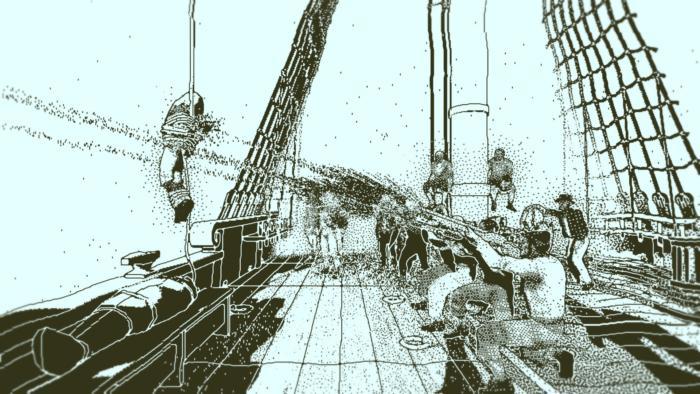
OK this is cheating, but I remembered it at the end and I’d be absolutely wrong to not include this game. I’ll keep it brief: this is a tremendous technical masterwork, with a strong sense of deduction, storytelling, and drama. If you like mysteries, Victorian seafaring epics, and the sense of trying to work out the answer to a question you barely recognize, this is the game for you. Really, I can’t recommend it enough.
10. Minit
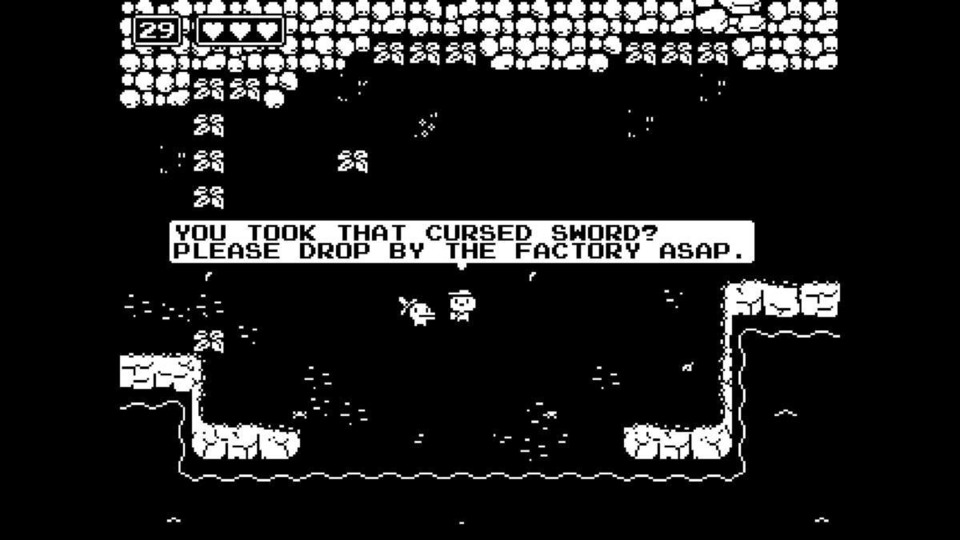
I find myself returning to old games to blow off steam less and less now that I have reason to play new games, but there’s an undeniable pleasure in digging into an old classic where you know all of the mechanical beats and can play the game like a fiddle. For me, the original Legend of Zelda is the most potent of these pleasures, a game where I have preternatural knowledge of every burnable bush, every moveable rock, every raft location, and every graveyard direction code. As early man knew to cast flint to rock to create the spark of life, I know that if you burn the third bush to the left in the top row on the one screen, you find a moblin with 70 rupees.
Minit plays with this feeling perfectly. The premise of the game, a top-down adventure game that recalls NES or, more accurately Game Boy aesthetics, is that you find a cursed sword that kills you every 60 seconds and you need to figure out what the deal is with all of that. The map, of course, is not small, and you never ever lose your curse, so the trick of the game is to find ways to produce shortcuts, get items, or unlock relationships with other characters so that you can get closer to the cause of your sword-cursed life. You need to become one with the map, to know it like you know your favorite old game’s map, in order to unlock it all. It’s a funny, self-aware game with frankly a brilliant little mechanic, and it’s very short, which in the year of extremely long epics that span 100 hours and 20 emotional journeys, is honestly very cool. Plus, it handles mortality with a sense of humor, so buy it just for that.
9. Donut County
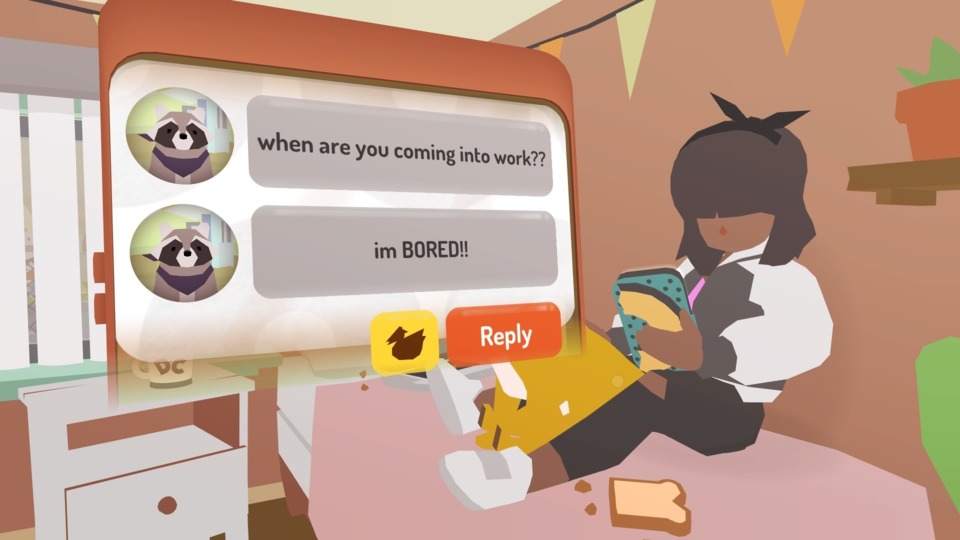
I think I focus on story too much when I think about indie games, and that’s been something I’ve had to fight against this year. Donut County does have lovable characters and a fun plot, don’t get me wrong, but the dialogue and plot--satisfying as a plot about raccoons stealing everything in a town to solve a crisis wherein they can’t get enough trash may be--isn’t really the star here. In fact, I was about halfway through the game before I realized who the real star was: the game’s primary mechanic, wherein you control the hole that BK sends via app whenever anyone orders a “donut” from the raccoon-controlled donut shop.
Your hole swallows up small things at first, and then, Katamari Damacy style, your hole grows and swallows bigger things. First it’s blades of grass, then rocks, and eventually buildings. As Don Brodka would say, you start by stealing video games and pretty soon you’re stealing stadiums, or quarries. But the simple joy of taking everything in a set map and making it disappear down a hole that interacts with a complex physics engine is deeply magical.
8. Monster Hunter: World
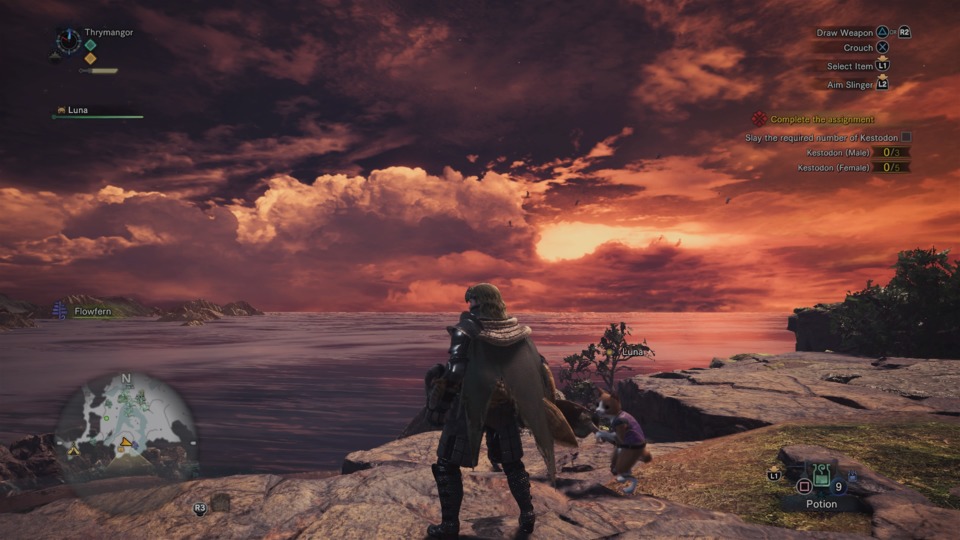
In all honesty, this should be higher. I never quite got the hang of Monster Hunter: World, and it’s a game I want to return to soon, because for all of the things that drove me away--the difficult health measurement of the monsters, the lack of a compelling story, the horribly complex matchmaking mechanic for multiplayer--the game is a brilliant piece of work. The crafting mechanics make you feel like you’re playing a Recettear style collect-a-thon, while the actual fighting mechanics are varied enough that you feel like your character style is really your own.
The gold standard of this is that, even after a few months of not touching the game, I can remember how it feels in battle to use the switch axe, its charging mechanic, and in what way I ought to use it to handle larger monsters. That kind of deep memory of a fighting system is something only games like Nioh or Dark Souls can produce, and the fact that Monster Hunter: World does this in a game so beautiful to look at and fun to produce craft in is a true achievement.
7. Yoku’s Island Express
So, I totally missed this one initially.
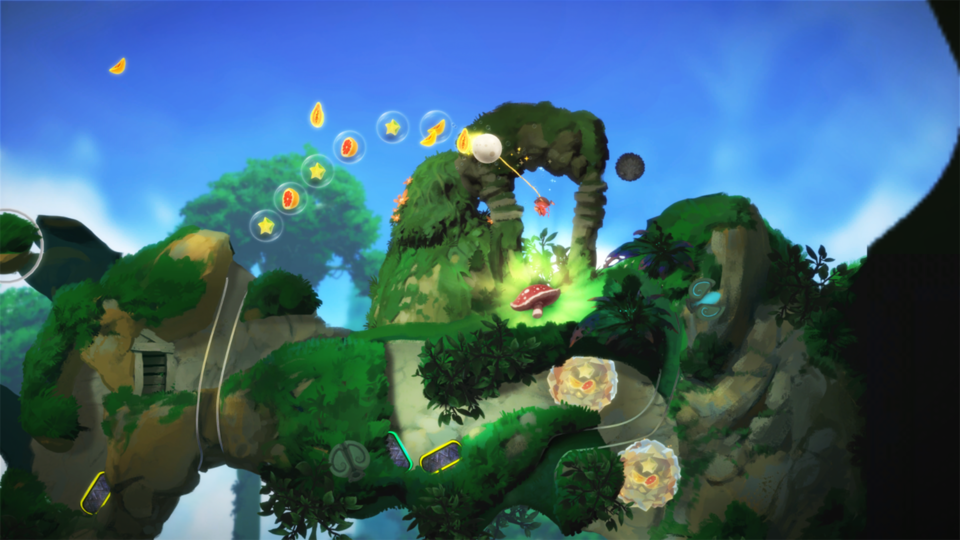
I had a handy thread on twitter where I asked people what their favorite underrated or under-observed games of 2018 were, and Yoku’s Island Express had a ton of support. Apparently my good friend Matt Dering also suggested it to me earlier, as well, so I am either thick-headed, or Yoku didn’t really get the hype it deserved. I think it’s maybe a bit of both.
Yoku’s Island Express is a game that probably plays best on the Switch, as it is a two button dream, but it works great on the PC too. Essentially, you play as a dung beetle tasked to deliver mail and solve existential calamities on a small island. The rock you’re attached to--you don’t actually roll dung, a fact that gets you called a sellout by the island’s lone anarcho-primitivist--is also your primary means of conveyance, as it gets batted around by the various paddles littering the island. Yes, you read it right: there is a pinball mechanic.
The game is so improbably built but so effortlessly enjoyable. I didn’t think it would make this list, and then I kept coming back to it again and again and again. I’m playing it a little while I draft this. It’s just so charming and rewarding--a platformer that is utterly without pretension and that has just enough challenge to tantalize without driving players away.
6. Dragon Ball FighterZ
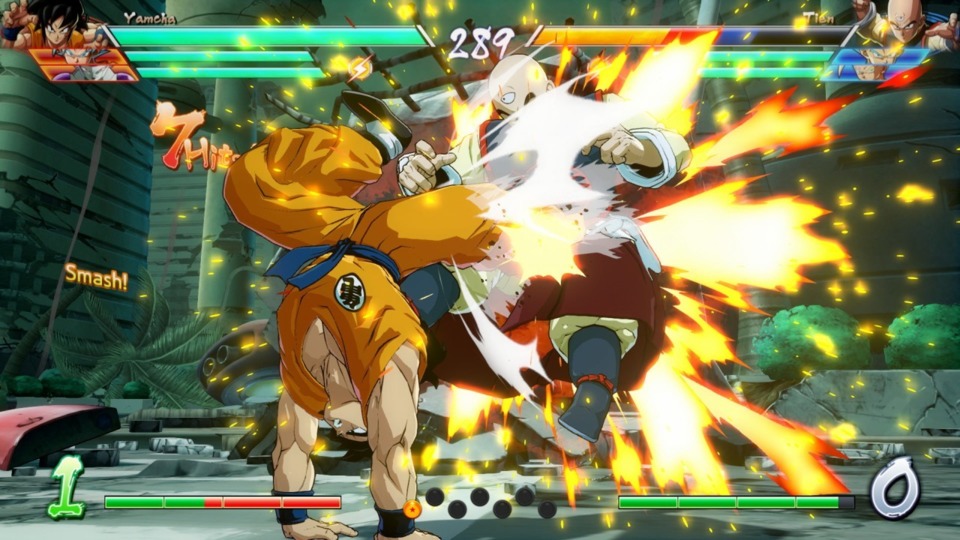
This is the game that I am most hopeless at in the list. When I covered Combobreaker 2018 this year (gentle reminder, go to Combobreaker and any and all fighting game competitions you can because they are amazingly fun), I decided to try my hand at competition just to get the whole cinéma vérité element of the event down pat. I entered into Skullgirls, where I was perfect-gamed by the guy who went on to easily win our pool, and Dragon Ball FighterZ, where I lost but put up a fight. The guy who beat me said he liked my team composition! It’s standing proof that participation trophy culture is good for you.
Anyway, while I am hopeless at playing DBFZ, I still enjoy it, which is remarkable. Unlike a lot of fighting games, my ineptitude doesn’t make me want to stop playing--the game honestly makes you feel like you’re in the middle of a Dragon Ball Z fight, and it’s kind of intoxicating.
More than this, the competitive scene that has sprung up around it has been masterful and incredibly fun to watch. The creativity of combo use, the technicality of combat, and the fast paced anime Arcsys style of animation just make Dragon Ball FighterZ a gem to watch. It’s not going to make a ton of end of year lists, I expect, just because fighting games rarely do given the absolute dedication they need to be really fun (apologies to Tekken 7, Street Fighter V, and Under Night In-Birth Exe:Late[st]), but DBFZ deserves to be seen and played by more people. If for no other reason than to see people like SonicFox tickle its ivories at the highest level of play.
5. Red Dead Redemption 2
I’m going to get in trouble for ranking this so low, relative to my peers. Let it be said--I absolutely adore the aesthetic of this game and I’m a sucker for melancholic Westerns. Pump me full of the deep feelings of loss and regret that Rockstar and its workers have distilled here; absolutely I’m your huckleberry for tough guy angst in journal form.
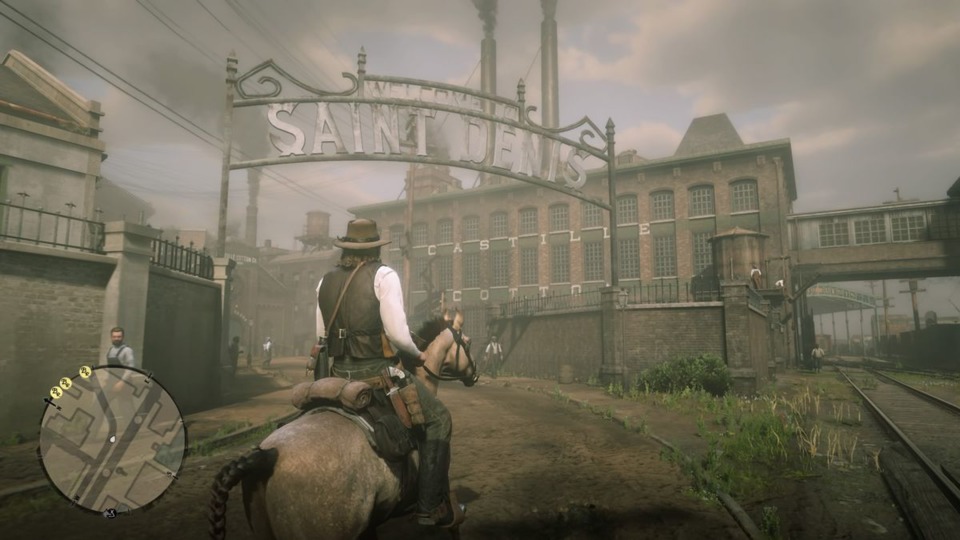
So, I absolutely have been enjoying Red Dead Redemption 2. And maybe when I finish it up, it’ll move up this list, I don’t know. But like a lot of open world games, RDR2 feels hollow at points. I talked about this with GB’s own Alex Navarro on my podcast, so I’m retreading his work here, but there’s a sense of deeply involved world-building at times with RDR2, and then at other times just a lack of it. The gang feels real and dynamic, a fun group of outlaws to grow and hate and love. The inclusion of indigenous characters in-game, as critic Dia Lacina and others have pointed out, feels at best throwaway and at worst a continuation of blindness to frontier violence and genocide. The landscape is gorgeous and the hunting elements of the game are so immersive. The complete lack of character continuity between towns feels like a weird appendage on that.
RDR2 is just uneven in this way I can’t quite place. It’s a masterpiece in some ways, but there’s this niggling reminder of the outside world in a way that just breaks me every time I want to love it. It’s not exactly the cultural content and it’s not exactly the labor issues and it’s not exactly the nature of open-world games. But it’s some mixture of the three. Perhaps like MH:W, I’ll play some more and feel this was a silly ranking. We’ll see!
4. Forza Horizon 4
Okay, this one’s easy to explain.
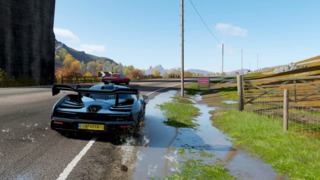
Recently I revisited racing games on a podcast with AutoWeek and I found myself totally confused by them. Too many microtransactions! Or, too technical! I couldn’t wrap my head around unlocking everything in Project CARS 2 and I couldn’t begin to understand how to play F1 2016. I was, in short, just not the audience at all for these games. And so I thought that would be the case with Forza Horizon 4.
Not so! I actually love the hell out of FH4 and the reason for it is because it’s just...fun. The seasonal mechanic is a treat, and I absolutely adore the way that the game feels different in snowy weather or sunny heat or rainy spring. The relative smallness of the open world is refreshing, as you get to really experience the entire British seaside area you’re driving around, and the racing is fun and low-key. Add to this that the fake money you use to unlock stuff is plentiful and new cars basically throw themselves at you, along with good opportunities to use them, and you basically have a perfect sandbox racer. It probably isn’t for the purists, as I’m sure the actual racing mechanic leaves something to be desired, but it’s a joy for a casual jaunt, and a deeply relaxing game.
Oh, and also you can jump, like, Ferraris off of huge cliffs for missions, so I mean... maybe I should’ve just said that?
3. The Missing: J.J. Macfield and the Island of Memories
SWERY is back!
Oh, yeah I guess I need more than that. SWERY is back and he’s made a game that seemed like it would be a sort of depressing consolation prize to the long wait we’re going to have before The Good Life. But that impression couldn’t have been more wrong. The Missing: J.J. Macfield and the Island of Memories is a dark puzzler/platformer that has so much heart and compassion built into it, it’s almost hard to finish because you don’t want the characters to leave. Spoilers ahead, though, so be warned.
The Missing is especially good because its mechanic--J.J., your heroine, is able to be grievously injured and put back together at will, which lets her slip through places as a rolling head or use one of her arms as a projectile to trigger a switch--matches with its theme. The theme of acceptance is shot through the game from the opening screen to the end, but it seemed worrisome to many that SWERY had made his queer heroine the victim of grievous, repetitive violence in the quest to save her girlfriend. As it happened, the twist at the end of the game revealed the core element of the theme--J.J. is trans, and the breadcrumbs through the game that made little sense suddenly add up.
Now, I am cis, and I don’t want to speak for anyone who is trans on this. Perhaps it doesn’t work! I’m not trying to say anything about the reality of SWERY’s depiction here. But the empathy with which SWERY approaches dysmorphia and self-hatred is rare in the gaming world, and I think more people need to play The Missing to see it in action. Also, the little mascot character is named FK, like in your coffee in Deadly Premonition! C'mon!
2. Celeste
My dad is a big film guy, which makes sense since he makes his living as an actor. So he had us watch a lot of his favorite movies growing up, and I always remember that he said there was only one movie he considered “perfect”: Mel Brooks’ Young Frankenstein. I remember that the distinction between “perfect” and “best” was tricky and worth debating, but also fairly unimportant. Celeste isn’t my pick for game of the year, but it very well could have been. And the ranking is beside the point: it’s a perfect game.
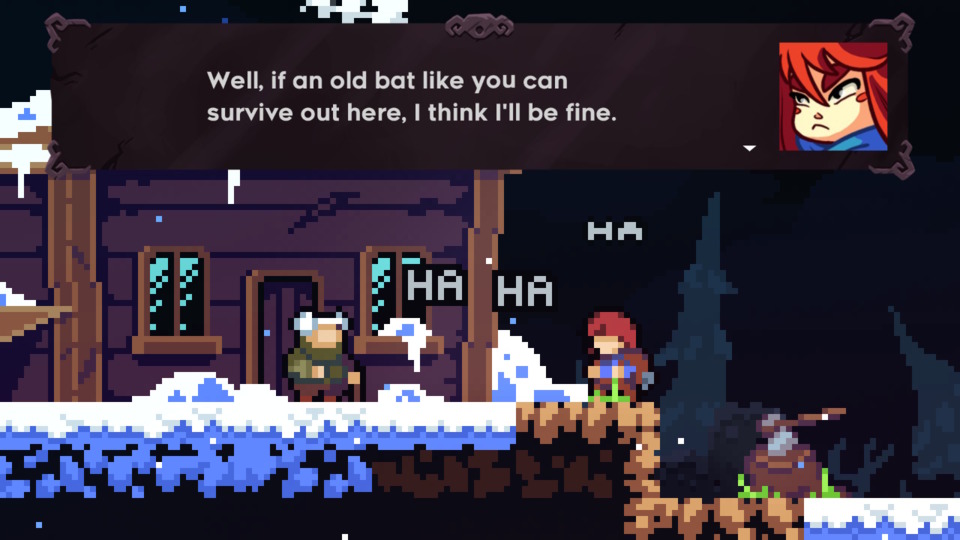
The themes are becoming typical--a story about facing depression as the monster in oneself. But Celeste not only handles this with the empathy I discussed above, it adds in the aggressive quality of chronic depression, making it clear that the part of you that is scared or sad can be dangerous and violent, but only to you. It’s a subtle but important change.
Meanwhile, the game itself is a picture perfect platformer. It is brutally hard, with a simple climb-jump-dash mechanic that is utilized to perfection on dozens and dozens and dozens of screens. And the content is absolutely packed in this game. There are B-Side levels that are more challenging than the already brutal main levels, and C-Sides to many of those levels! You could live with the action and precision of Celeste for a long time. I wholeheartedly suggest you do.
1. Dead Cells
Okay, so I just read an article by unhaunting on this game that made me worry I was wrong about listing it as my GOTY. The argument was that Dead Cells represented a kind of nihilism that infected game discourse and represented our worst instincts. It’s a good article! You can find it here.
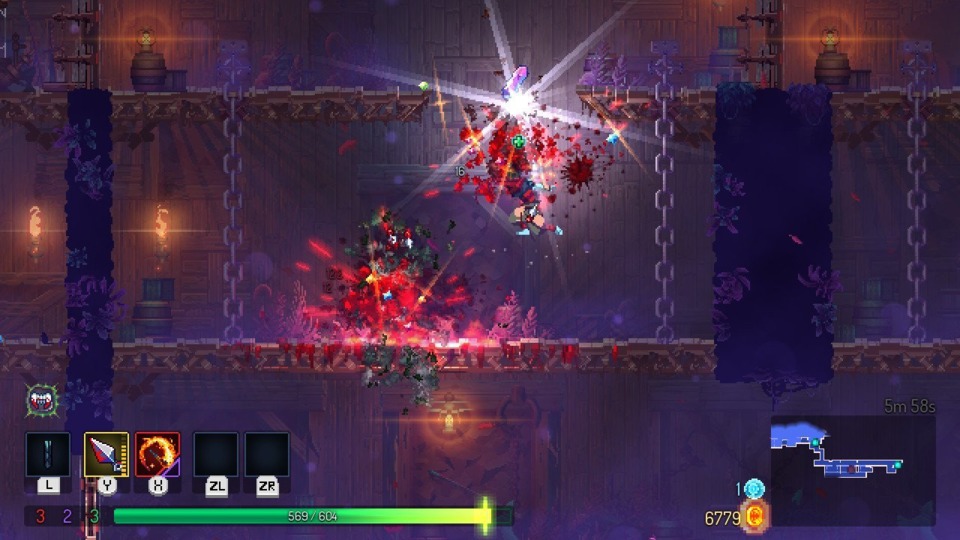
Now, with that said, I don’t agree with unhaunting. I think Dead Cells is a masterpiece, a true 2D time sink that has the ability, like Hollow Knight, to be perfected into a no-hit, perfect game just on the tip of its tongue. This perfection is what you’re chasing playing Dead Cells, and the game knows it, making each subsequent encounter and trap and puzzle all the more deadly and frustrating and difficult, which in turn makes it incredibly easy to just play it all over again one more time just one and then bed okay.
And yes, Dead Cells has been in beta for years now. I played it in beta! This new release is something different and something that deserves your time and energy in the now. They have managed to fix the scaling imbalance that plagued the early versions of leveling up in-game. No longer are you getting one-shotted by easy enemies in later levels. They added lore to the game, mostly to comic effect, but often to flesh out the overall quagmire your nameless protagonist finds themselves in. And they produced a robust system of unlocks, “mutations” that augment your character as they continue through the game, scaling difficulty, branching paths, a streamer mode, and best of all, a sense of completion.
Yes, Dead Cells is what you’d call a true early access success story. It presented us with an unfinished product...and then it finished that product. If you haven’t played in a while, pick it up, give it a try. It’s a truly great game, and it was made by some extremely leftwing French syndicalists, so...I mean, bonus, right?
---
Thanks for taking this journey with me, and thanks to Giant Bomb for having me. I am beyond honored.
And as promised, here’s my very quick list of games that might make me look very foolish indeed after I’ve played them! It has been a big year:
- Hitman 2
- God of War
- Marvel's Spider-Man
- Pillars of Eternity II: Deadfire
- Ni No Kuni II
- Yakuza 6
- BattleTech
- Frostpunk
- Heaven Will Be Mine
- Tetris Effect
- Paratopic
- The Earth is a Better Person Than Me
- The Hex
- Deep Rock Galactic